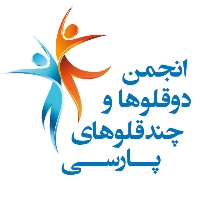.jpg)
یک برنامه سراسری در استرالیا ویژه مدرسه دوقلوها
1401/10/25
0 کامنت
1 لایک
چکیده
خانواده چند قلویی بیشتر از هر سرویس دیگری با سیستم آموزشی اختلاف دارند. بسیاری از زمینههای بالقوه درگیری بر سر تواناییها و رفتار چند قلوها و مسائلی مانند جدایی یا کنار هم بودن دوقلوها وجود دارد. یکی از دلایل اختلافات، فقدان دادههای خوب برای بازتاب کافی دیدگاههای متفاوت والدین و معلمان و نیازهای متفاوت خانوادهها است: راهحل یکسان برای همه صدق نمیکند. برای ارائه اولین پایگاه داده در مقیاس بزرگ و بر اساس نظرسنجی اولیه از 85٪ از همه معلمان مدارس ابتدایی در استرالیای جنوبی، LaTrobe Twin Study و AMBA با ادارات آموزش همکاری کردند تا در هر ایالت تیم های تحقیقاتی آموزش و پرورش (ERTs) از والدین چند قلوها که معلم هم بودند، راه اندازی کنند. ERT ها در سه مرحله حیاتی بودند.
1) تهیه و توزیع پرسشنامه و انتشار نظرسنجی سراسری. 784 خانواده و 1264 نفر از معلمهای فرزندانشان این پرسشنامه ها را تکمیل کردند، بسیاری گزارش دادند که پرداختن به مسائل مطرح شده در پرسشنامه یک تجربه یادگیری ارزشمند است.
2) کاوش در پایگاه داده. مسائل مطرح شده شامل مبانی بسیار متفاوتی بود که بر اساس آن والدین و معلمان جدایی را مطلوب ارزیابی می کردند، با تأکید معلمان بر این ادعای اثبات نشده که جدایی برای رشد فردی ضروری است. جدایی در سه سال اول مدرسه رایجتر شد، اما 20 تا 25 درصد از دوقلوهایی که یک سال از هم جدا شدند، سال بعد دوباره با هم بودند.
3) برگزاری جلسات منطقه ای والدین، معلمان و مدیران برای بحث در مورد نتایج و تجمیع تجربیات و برنامه ریزی سیاست ها در سطح محلی. به وضوح نیاز به بهبود سطح مشاوره بین خانواده ها و پرسنل مدرسه و اطمینان از دستیابی گسترده اطلاعات وجود دارد که مسائل کلیدی را در تصمیم گیری برای خانواده چندقلوها مشخص می کند.
Abstract
The multiple birth family is more likely to have a dispute with the education system than with any other service. So many potential areas of conflict exist over the abilities and behaviour of multiples and over such issues as separation or keeping back one twin. One reason for disputes is the lack of good data to adequately reflect the different perspectives of parents and teachers and the differing needs of families: the same solution does not apply to all. To provide the first large-scale data base and building upon an initial survey of 85% of all primary school teachers in South Australia, the LaTrobe Twin Study and AMBA worked with Education Departments to set-up in each state Education Research Teams (ERTs) of parents of multiples who were also teachers. The ERTs were crucial in three phases. 1) Developing and circulating questionnaires and publicising the nationwide survey. 784 families and 1264 teachers of their children completed these questionnaires, many reporting that simply having to address the issues raised in the questionnaire was a valuable learning experience. 2) Exploring the data base. Issues arising included the very different bases on which parents and teachers judged separation desirable, with teachers emphasising the unsubstantiated claim that separation is essential to individual development. Separation became more common over the first three years of schooling but 20-25% of twins separated one year were back together the next. 3) Running regional meetings of parents, teachers and administrators to discuss the results and to pool experiences and plan policies at the local level. A need clearly exists to improve the level of consultation between families and school personnel and to ensure the widespread availability of information which identifies key issues in making decisions for that multiple birth family.
Similar articles
- Twin children in volunteer registries: biases in parental participation and reporting.Acta Genet Med Gemellol (Roma). 1990;39(1):71-84. doi: 10.1017/s0001566000005584.PMID: 2392893
- Meeting the needs of parents around the time of diagnosis of disability among their children: evaluation of a novel program for information, support, and liaison by key workers.Pediatrics. 2004 Oct;114(4):e477-82. doi: 10.1542/peds.2004-0240.PMID: 15466074
- [Attitudes of Costa Rican students and teachers on sex and population education].Perspect Int Planif Fam. 1987;(Spec No):1-6.PMID: 12269046 Spanish.
- Exploring conceptual and theoretical frameworks for nurse practitioner education: a scoping review protocol.JBI Database System Rev Implement Rep. 2015 Oct;13(10):146-55. doi: 10.11124/jbisrir-2015-2150.PMID: 26571290 Review.
- Netherlands Twin Register: a focus on longitudinal research.Twin Res. 2002 Oct;5(5):401-6. doi: 10.1375/136905202320906174.PMID: 12537867 Review.



